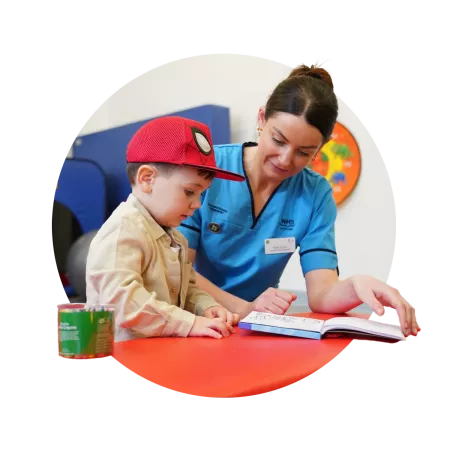Find an occupational therapist

Occupational therapists work with everyone
Occupational therapy helps you live your best life at home, at work – and everywhere else. It’s about being able to do the things you want and need to do. That could mean helping you overcome challenges learning at school, going to work, playing sport or simply doing the dishes. Everything is focused on your wellbeing and your ability to take part in activities.
Occupational therapists typically work with:
- children and young people
- people with physical disabilities and long-term conditions
- people with learning disabilities
- people with mental health conditions
- older people
- people at the end of life.
NHS and private
- A referral from your GP or a health and social care professional to see an occupational therapist free of charge on the NHS, or through education or social services.
- Find a local private occupational therapist who could help you. They usually provide services that aren’t available from the NHS or social services and/or have no waiting lists. Private occupational therapists will charge a fee for their services.
Get a referral
Start by talking with your GP or if you regularly see a social worker, nurse or other health care professional, they can also help you contact an occupational therapist through health or social services.
- Be prepared to describe any difficulties that you have and how they are affecting your daily life, or the lives of those who care for you.
- Ask how long it’s likely to take to get an appointment, there might be a waiting list.
Search our directory to find an occupational therapist either near you or provides a specific service you need help with. We recommend contacting more than one occupational therapist and compare the information given.
Find a private occupational therapist
We don’t endorse, or assume any responsibility or liability for, any of the occupational therapists listed in this directory.
All occupational therapists have to be registered with the Health and Care Professions Council (HCPC) before they can practice.
HCPC is responsible for the conduct, performance and ethical behaviour of its registrants. You can check that an occupational therapist is registered with the HCPC on their website.
If you’re searching for an occupational therapist for yourself, or for someone else, be mindful of General Data Protection Regulation (GDPR) best practice, and how data should be used accordingly.
How will an occupational therapist help you?
Occupational therapists see beyond diagnoses and limitations to hopes and aspirations. They look at relationships between the activities you do every day – your occupations – alongside the challenges you face and your environment.
Then, they create a plan of goals and adjustments targeted at achieving a specific set of activities. The plan is practical, realistic and personal to you as an individual, to help you achieve the breakthroughs you need to elevate your everyday life.
This support can give you a renewed sense of purpose. It can also open up new opportunities and change the way you feel about the future.
- Aids and adaptions: Occupational therapists help with special equipment like wheelchairs and aids for mobility, eating, dressing or any other activity. They also help to adapt people’s homes and workplaces to accommodate their individual needs.
- Developing skills: Occupational therapists can help you get better at skills like moving your body or thinking so that you can perform essential activities like dressing, cooking or work and leisure activities like using a computer.
- Modifying tasks: Occupational therapists can help you by designing new ways to do the things you want or need to do. They can advise on alternative methods, techniques or tools you can use to achieve what you ant.